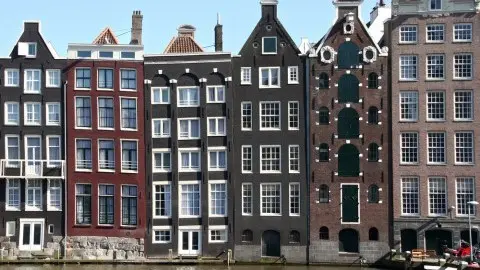VoxEU: Covid and the nature of capitalism
For all the harm that it caused, the Covid-19 crisis provided an opening to rethink the versions of capitalism on both sides of the Atlantic. Some degree of convergence towards a better model is desirable and perhaps even possible, writes Philippe Aghion, Helene Maghin and André Sapir for VoxEU.
Capitalism: "cut-throat" or "cuddly"?
None of us had predicted the pandemic we are currently experiencing, nor the severe global economic downturn it has caused. For all the harm it has brought into the lives of so many people worldwide, the Covid-19 crisis may have one merit: namely, to serve as a ‘wake-up call’ for reforming capitalism in the different forms it takes on both sides of the Atlantic.
In the US, the epidemic has brought into focus the tragedy of all those individuals who are not insured – or poorly insured – against job losses and health problems (Furman 2020).
In Europe, the crisis has shed light on the rigidities and lack of coordination in the innovation response to the Covid-19 shock. Unavoidably, the crisis has prompted existential debates on how to think about the ‘after-Covid world’ (Goldberg 2020).
The US model of capitalism and Western European models – in particular, those of Germany and the Scandinavian countries – are often viewed as opposites: ‘cut-throat’ capitalism versus ‘cuddly’ capitalism (Acemoglu et al. 2012). Cut-throat capitalism is good for innovation but generates inequality not only in income but also in employment and health protection. Cuddly capitalism is better at redistributing income and at protecting employment and health but worse at producing frontier innovation.
How are the US and Western European models dealing with and responding to the Covid-19 crisis in terms of employment, health protection, and income support on the one hand, and innovation on the other hand?
A key quote from the article:
Both ‘cutthroat’ and ‘cuddly’ capitalisms are implementing changes to deal with their structural weaknesses during the Covid crisis. The US has implemented some short-term income support measures to reduce the risk of poverty, but it has not adopted structural measures to reform its system and move towards a cuddlier capitalism.
In Europe, on the other hand, the Covid-19 crisis may be an opportunity to move towards a new model of capitalism in which both innovation and the protection of citizens are promoted. This is not a naive ideal: states can have it all.
The Scandinavian model of flexi-security has shown that countries can have both generous social protection and vibrant innovation. Germany has also achieved an impressive balance in this regard. Other European countries need to move in the same direction by incentivising innovation while continuing to protect citizens from social and health risks. The Next Generation EU package currently discussed by European leaders has the potential to stimulate a transformative recovery, making Europe a caring and innovative place.
The full and original article first appeared on VoxEU here on 25th June 2020.
This publication has been prepared by ING solely for information purposes irrespective of a particular user's means, financial situation or investment objectives. The information does not constitute investment recommendation, and nor is it investment, legal or tax advice or an offer or solicitation to purchase or sell any financial instrument. Read more
Download
Download opinion
7 July 2020
New Horizons Hub: the changing nature of capitalism after Covid-19 This bundle contains 5 Articles